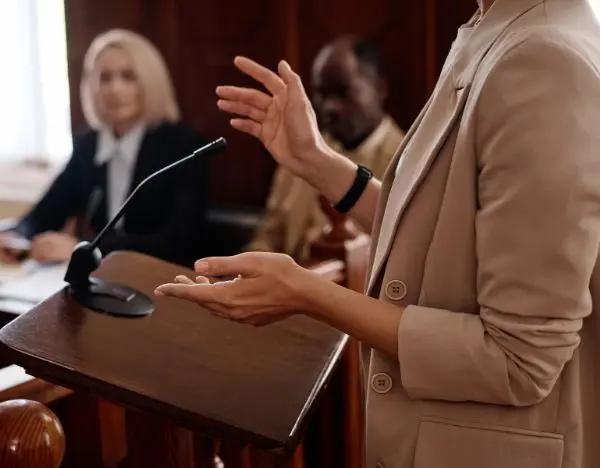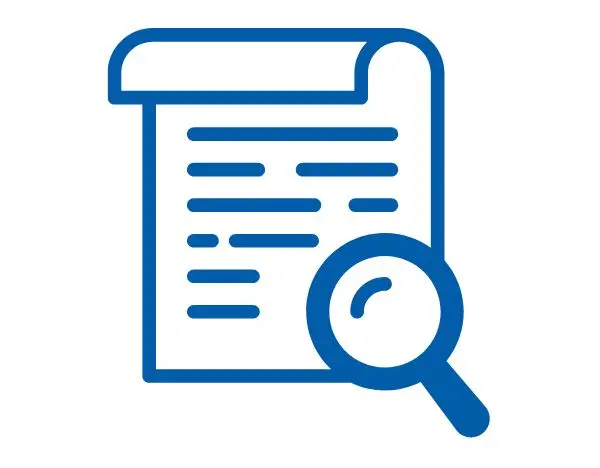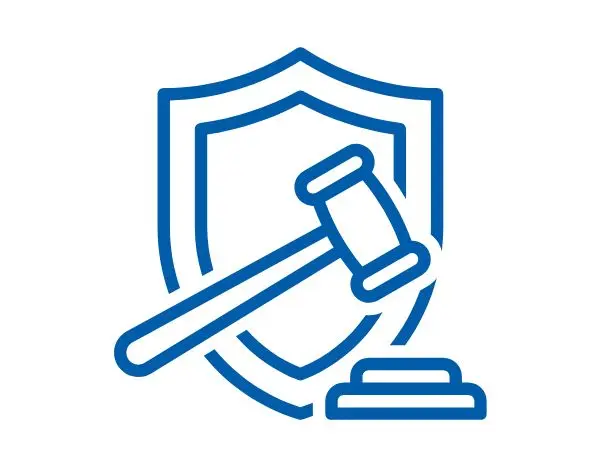What Happens After an Indictment?

At Trbovich Law Firm in Buffalo, New York, we understand that facing an indictment can be a daunting experience. If you or a loved one has been indicted, you may be wondering what comes next in the legal process. This comprehensive guide will walk you through the steps that typically follow an indictment, helping you navigate this challenging time with greater confidence and understanding.
Contact Trbovich Law Firm today for robust indictment support if you're facing an indictment.
What is an Indictment?

An indictment is a formal crime accusation, typically issued by a grand jury. It serves as the starting point for felony prosecutions in the federal court system and many state courts. The indictment process is a critical part of the criminal justice system, designed to ensure sufficient evidence to proceed with a criminal case before it goes to trial.
What is an Indictment: The Grand Jury Process
To understand indictments fully, it's essential to know about the grand jury process:
- Grand Jury Selection: A group of citizens is selected to serve on the grand jury. Unlike trial juries, grand juries often serve for extended periods and may hear evidence on multiple cases.
- Presentation of Evidence: The prosecutor presents evidence to the grand jury. This may include witness testimony, documents, and other forms of evidence.
- Deliberation: After hearing the evidence, the grand jury deliberates in secret to determine if there's probable cause to believe a crime has been committed.
- Decision: If the grand jury finds probable cause, they issue an indictment. If not, they may issue a "no bill," meaning they don't believe there's enough evidence to proceed with charges.
What is an Indictment: Components of an Indictment
An indictment typically includes:
- The name of the defendant
- The specific criminal charges
- A brief description of the alleged criminal act
- The date and location of the alleged crime
- The laws allegedly violated
It's important to note that an indictment is not evidence of guilt. It's merely a formal accusation that allows the criminal case to proceed to trial.
Indictment vs. Information
In some jurisdictions and for certain types of cases, prosecutors may file a document called an "information" instead of seeking an indictment. An information serves a similar purpose but doesn't involve a grand jury. The prosecutor files this document directly with the court, alleging that the defendant committed a specific crime.
What Happens After an Indictment?
Before delving into what happens after an indictment, it's crucial to understand what an indictment is and how it comes about. An indictment is a formal crime accusation, typically issued by a grand jury. It marks the beginning of a criminal case in the federal court system or in some state courts.
The indictment process itself involves:
- Investigation by law enforcement
- Presentation of evidence to a grand jury
- Grand jury deliberation
- Issuance of the indictment if probable cause is found
Once an indictment is issued, the legal proceedings move forward, and several important steps follow.
Arraignment: The First Court Appearance
After an indictment, the next significant event is the arraignment. This is the defendant's first appearance in court following the indictment. During the arraignment:
- The charges are formally read to the defendant
- The defendant enters a plea (usually "guilty," "not guilty," or "no contest")
- The judge may address bail or release conditions
- Future court dates may be set
It's crucial to have a Buffalo criminal defense lawyer present during the arraignment to ensure your rights are protected and to guide you through the process.
Pre-Trial Proceedings
Following the arraignment, several pre-trial proceedings take place. These can include:
Discovery
The discovery phase involves the exchange of information between the prosecution and defense. During this time:
- The prosecution must disclose evidence they plan to use at trial
- The defense can request access to certain evidence
- Both sides may file motions related to the admissibility of evidence
Pre-Trial Motions
Your indictment lawyer may file various pre-trial motions, such as:
- Motion to dismiss the charges
- Motion to suppress evidence
- Motion for a change of venue
- Motion to sever charges or defendants
These motions can significantly impact the course of your case and may even lead to dismissal of charges in some instances.
Plea Bargaining
Many cases are resolved through plea bargaining. This process involves negotiations between the defense and prosecution to reach an agreement. Potential outcomes include:
- Pleading guilty to lesser charges
- Agreeing to a specific sentence recommendation
- Dropping some charges in exchange for a guilty plea on others
While plea bargaining can often result in a more favorable outcome than going to trial, it's essential to discuss all options thoroughly with your criminal defense lawyer before making any decisions.
Preparing for Trial
If a plea agreement is not reached, the case will proceed to trial. Preparation for trial is a critical phase that includes:
- Reviewing all evidence
- Interviewing potential witnesses
- Developing trial strategies
- Preparing opening and closing statements
- Selecting expert witnesses if necessary
Your indictment lawyer will work diligently to build the strongest possible defense for your case during this time.
The Trial Process
The trial itself is a complex process that can last anywhere from a few days to several weeks, depending on the complexity of the case. Key components of a trial include:
- Jury selection (in jury trials)
- Opening statements
- Presentation of evidence and witness testimony
- Cross-examination of witnesses
- Closing arguments
- Jury instructions (in jury trials)
- Jury deliberation and verdict (or judge's decision in bench trials)
Throughout the trial, your criminal defense lawyer will advocate on your behalf, challenging the prosecution's evidence and presenting your defense.
Post-Trial Proceedings
After the trial concludes, several post-trial proceedings may occur:
Sentencing
If the verdict is guilty, a sentencing hearing will be scheduled. During this hearing:
- The judge determines the appropriate punishment
- Both the prosecution and defense can present arguments for sentencing
- Character witnesses may testify
- The defendant has the right to make a statement
Your indictment lawyer will work to secure the most favorable sentence possible given the circumstances of your case.
Appeals
If you're convicted, you have the right to appeal the verdict. The appeals process involves:
- Filing a notice of appeal within a specified timeframe
- Preparing and submitting appellate briefs
- Possibly presenting oral arguments before an appellate court
Appeals can be based on legal errors during the trial, improper admission of evidence, or other grounds that may have affected the fairness of the proceedings.
Navigating the Post-Indictment Process
What happens after an indictment can be complex and overwhelming. Each step of the process requires careful consideration and strategic decision-making. At Trbovich Law Firm, we have extensive experience guiding clients through these challenging times.
Our approach includes:
- Thorough case evaluation: We meticulously review all aspects of your case, from the initial investigation to the indictment process.
- Strategic planning: We develop a comprehensive defense strategy tailored to the specific circumstances of your case.
- Aggressive advocacy: Whether negotiating plea agreements or representing you at trial, we fight tirelessly to protect your rights and pursue the best possible outcome.
- Clear communication: We keep you informed at every stage of the process, ensuring you understand your options and can make informed decisions about your case.
- Compassionate support: We understand the emotional toll of facing criminal charges and provide supportive guidance throughout the legal process.
The Importance of Experienced Legal Representation For an Indictment

Navigating what happens after an indictment requires the guidance of a knowledgeable criminal defense lawyer. At Trbovich Law Firm, we have a deep understanding of both state and federal criminal law. Our experience allows us to:
- Identify weaknesses in the prosecution's case
- Leverage legal precedents to your advantage
- Negotiate effectively with prosecutors
- Present compelling arguments in court
We work diligently to ensure that your rights are protected and that you receive fair treatment throughout the legal process.
How an Indictment Defense Lawyer Can Help
When facing an indictment, the assistance of a skilled indictment defense lawyer can be invaluable. At Trbovich Law Firm, we provide comprehensive support to clients dealing with indictments. Here's how an indictment defense lawyer can help:
- Case Analysis: An indictment defense lawyer thoroughly reviews the indictment and all available evidence. This analysis helps identify potential weaknesses in the prosecution's case and forms the foundation of your defense strategy.
- Legal Guidance: The criminal justice system has numerous rules, procedures, and deadlines. An indictment defense lawyer navigates these complexities, ensuring you understand your rights and options at every stage.
- Strategic Defense Planning: Your Buffalo criminal defense lawyer develops a tailored defense strategy based on the case analysis. This may involve challenging the validity of the indictment, seeking to suppress evidence, or preparing for trial.
- Negotiation with Prosecutors: An indictment defense Buffalo criminal defense lawyer can often negotiate with prosecutors for a favorable plea deal. This might result in reduced charges, lighter sentences, or even case dismissal in some instances.
- Court Representation: If your case goes to trial, your indictment defense Buffalo criminal defense lawyer represents you in court. This includes presenting opening and closing statements, cross-examining witnesses, and arguing legal motions.
- Evidence Gathering: Your Buffalo criminal defense lawyer can conduct independent investigations, interview witnesses, and gather evidence to support your defense.
- Protection of Constitutional Rights: An indictment defense lawyer ensures that your constitutional rights are protected throughout the legal process. This includes challenging any violations that may have occurred during the investigation or indictment process.
- Mitigation of Consequences: Even in cases where a conviction is likely, an indictment defense lawyer works to mitigate the consequences. This could involve arguing for alternative sentencing options or minimizing the impact on your personal and professional life.
- Emotional Support: Facing an indictment can be a stressful and emotionally taxing experience. An indictment defense lawyer provides not just legal support, but also guidance and reassurance throughout the process.
- Post-Trial Assistance: If necessary, an indictment defense lawyer can help with post-trial matters such as appeals or record expungement
Signs You May Be Facing an Indictment
Let's explore the various indicators that you might face an indictment and the steps you can take to protect your rights.
Law Enforcement has contacted you
One of the most obvious signs that you may be facing an indictment is direct contact from law enforcement agencies. This could include:
- Receiving a target letter from the U.S. Attorney's Office
- Being visited by federal agents (FBI, DEA, IRS, etc.)
- Receiving a subpoena to testify before a grand jury
If you experience any of these, it's crucial to consult with a criminal defense lawyer immediately
Your Associates Have Been Contacted or Arrested
Sometimes, the first sign of a potential indictment comes through your associates. If people you know professionally or personally have been:
- Questioned by law enforcement about you or your activities
- Arrested in connection with activities you're involved in
- Subpoenaed to testify before a grand jury
These could be indicators that you're part of a larger investigation that may lead to an indictment.
You Notice Increased Surveillance
While not always easy to detect, increased surveillance can be a sign of an ongoing investigation. This might include:
- Unfamiliar vehicles parked near your home or workplace
- Sensing that you're being followed
- Unusual activity on your phone or computer
Your Financial Records Are Being Scrutinized
If you become aware that your financial records are being examined, this could be a sign of an impending indictment, especially in cases involving white-collar crimes. Signs might include:
- Receiving notice that your bank records have been subpoenaed
- Learning that your business partners or employees have been asked about financial transactions
- Unexplained audits by government agencies
You've Been Asked to Preserve Documents
Receiving a request to preserve documents, often called a "preservation letter," can be a sign that you're under investigation. This is especially common in corporate settings and can precede an indictment.
There's Media Coverage About an Investigation
In high-profile cases, you might learn about a potential indictment through media coverage. If you see news reports about investigations into activities you're involved with, it could be a sign that an indictment is forthcoming.
You're Aware of a Parallel Civil Investigation
Sometimes, a civil investigation can run parallel to a criminal investigation. If you're involved in a civil case with a government agency, be aware that information gathered could potentially be used in a criminal case as well.
What to Do If You Suspect an Indictment Is Coming
If you recognize any of these signs, it's crucial to take immediate action to protect your rights:
Don't Panic
While the situation is serious, panicking can lead to poor decisions. Stay calm and focused on addressing the situation rationally.
Exercise Your Right to Remain Silent
Anything you say can be used against you in court. It's crucial to exercise your Fifth Amendment right to remain silent. Don't discuss the situation with anyone other than your Buffalo criminal defense lawyer.
Don't Destroy Evidence
Destroying evidence can lead to additional charges of obstruction of justice. Preserve all documents and electronic records that might be relevant to the investigation.
Consult with a Criminal Defense Lawyer
This is perhaps the most critical step. An experienced criminal defense lawyer can:
- Assess your situation
- Advise you on how to proceed
- Communicate with law enforcement on your behalf
- Begin building your defense strategy
At Trbovich Law Firm, we have extensive experience in handling pre-indictment investigations and building strong defenses for our clients.
Consider Proactive Cooperation
In some cases, proactively cooperating with the investigation under the guidance of your lawyer can be beneficial. This might involve:
- Voluntarily providing information
- Negotiating with prosecutors
- Addressing potential charges before an indictment is issued
Your lawyer can advise you on whether this approach is appropriate for your situation.
Act Now - Protect Your Rights
Concerned about a potential indictment? Don't wait. Contact Trbovich Law Firm today at [phone number] for a confidential consultation. We're here to defend your rights and future.
Contact Trbovich Law Firm today for robust indictment support if you're facing an indictment.
Indictment FAQs
Can an indictment be sealed?
Yes, in some cases, the court can seal an indictment. This means the indictment is not made public until the defendant is arrested or the court unseals it. Sealed indictments are often used to prevent suspects from fleeing or destroying evidence.
How long does the indictment process typically take?
The duration can vary significantly depending on the complexity of the case and the jurisdiction. A grand jury may take anywhere from a few weeks to several months to hear evidence and decide whether to issue an indictment.
Can an indictment be dismissed?
Yes, it can be dismissed by the prosecutor or the court. Reasons for dismissal might include a lack of evidence, procedural errors, or violations of the defendant's rights. However, dismissal doesn't always prevent prosecutors from refiling charges.
Is an indictment the same as being charged with a crime?
An indictment is one way of being formally charged with a crime, typically used for felonies in federal and some state courts. However, charges can also be brought through a criminal complaint or information, depending on the jurisdiction and the nature of the alleged crime.
Do I have to testify if I'm indicted?
No, you have the right to remain silent under the Fifth Amendment of the U.S. Constitution. You cannot be compelled to testify against yourself in criminal proceedings. However, whether to testify should be made in consultation with your criminal defense lawyer.
Can I know if I'm being investigated before an indictment?
Sometimes, but not always. While there may be signs that you're under investigation (as discussed earlier in this post), law enforcement agencies often conduct investigations without knowing potential suspects. This is why it's crucial to be aware of the signs and seek legal counsel if you suspect you're under investigation.
What's the difference between a federal and state indictment?
Federal grand juries issue federal indictments for violations of federal law, while state grand juries issue state indictments for violations of state law. Federal indictments often involve crimes that cross state lines or violate specific federal statutes. The procedures and potential penalties can differ significantly between federal and state cases.

